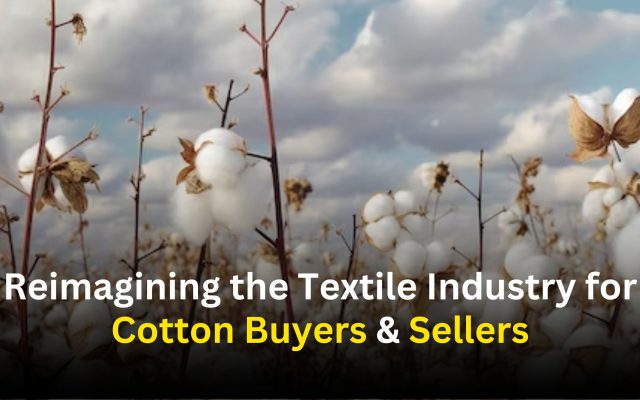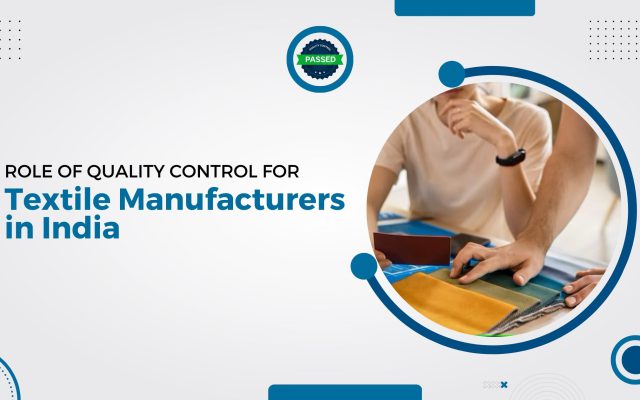The Indian textile sector is one of the most distinctive in the world, not to mention one of the largest, too, employing over 50 million people directly. The domestic textile companies in India alone contribute 2% to India’s GDP, while fabric suppliers contribute 12% of the country’s earnings from exports.
And despite the significant downturn due to the COVID-19 pandemic, the industry is still expected to come back in full force and develop at a 10% CAGR by 2026 and will be worth more than US$209 billion by 2029.
While this is one side of the story, the challenges and social and environmental impact make the other side.
Challenges that Textile Companies in India Face
The changing government policies at the state and central government levels are one of the major challenges to the Indian textile industry.
Another threat is the rising interest rate, labor costs, and workers’ salaries.
Due to pollution issues, many units in China and Europe have been shut down, resulting in raising prices of basic raw materials. Even weather and climatic change have influenced the raw material supply.
Environmental concerns, such as excess carbon footprints caused by manufacturing units, aren’t at the top of textile fabric suppliers’ and manufacturers’ concerns.
The low-quality infrastructure continues to be one of the biggest problems.
However, access to the latest technology is the most significant limitation for textile companies in India. From trading to supply chain to logistics, we do not have the latest software systems to meet global standards in the highly competitive market.
What Initiatives has the Government Taken?
- 100% FDI under the automatic route
- Established the India-Japan Textile Pact to facilitate the smooth export of textiles, adhering to Japan’s technical regulation
- Proposed and implemented the National Technical Textiles Mission for 2023 – 2024
- Amended the Technology Upgradation Fund Scheme (ATUFS) that’s expected to create employment for over 35 lakh people
- The Cabinet Committee on Economic Affairs (CCEA) approved a new scheme for textile manufacturers named ‘Scheme for Capacity Building in Textile Sector.’
What’s the Remedial Measure?
For making the textile industry competitive globally, we need to adopt modern technology and upgrade our systems.
For reducing negative environmental impact and carbon footprint, we must focus on integrating systems and operations and reducing machine usage and resource wastage, and thinking of a more organic way of producing fabrics.
We need support from both state and central governments in order to compete at the international level effectively.
How TEXchange Addresses One of the Problems
Due to insufficient digital advancement, B2B textile businesses are facing major challenges, particularly revolving around time, cost, trust, and transparency.
But with our inventive solution, we can see a brighter future for the textile sector on the horizon.
TEXchange Global is a completely online, fully-integrated B2B textile trading platform that aims to solve 90% of the textile buying and selling challenges.
How Does It Help Global B2B Fabric Buyers, Cotton Buyers, and Fabric Suppliers?
- An integrated solution that reduces carbon footprint by decreasing resource usage and allows transparent, secure, and customized B2B textile buying and selling.
- Enables fabric suppliers to create a global base online.
- Helps register a company for international trade instantly.
- Eliminates the need for 3P intermediaries and traders, reducing sales costs by 30%.
- It allows buyers and sellers to find their niche customers in a day, if not minutes, as opposed to the lengthy traditional process.
- You can manage all your greige cotton fabric online orders in one place and track them in real-time.
- You can also talk to your customers directly and close deals several times faster than the usual 3 -4-week long process.
- Fabric buyers and sellers can operate the portal from any Browser on any Device at Any time without having to install. Saves space too.
- It also comes with first-of-its-kind tools, like TEXauction, TEXrate, and TEXbulletin, powered by a smart task manager and smarter ERP.
- With the TEXauction tool, businesses can create LIVE HOT Auctions or Bids for any product offer or enquiry and get the best value for it on the spot.
- The best part? It not only allows textile companies in India to stay in business 24/7 but also comes with a ‘No Subscription Fee’ policy.
- Cotton buyers and sellers can start their online business on TEXchange with practically zero investments.
To know more about TEXchange Global, visit www.texchangeglobal.com.




